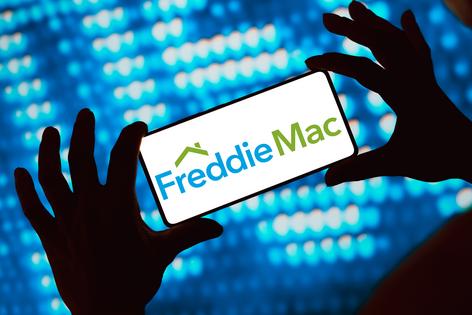Will Freddie Mac’s use of AI help or hurt potential borrowers?
There has been a lot of news concerning the secondary mortgage market, specifically Fannie Mae and Freddie Mac.
While President Trump was hinting he might allow Fannie Mae and Freddie Mac to go public, after 20 years of conservatorship, Freddie Mac announced a major update to how they approve mortgages.
The company plans to use artificial intelligence to not just underwrite loans, but make the final approval on whether an applicant should get approved. Freddie Mac believes that the use of AI will speed up the loan underwriting process. But while using AI may make the process of underwriting loans faster and perhaps less expensive, we wonder about some of the side effects caused by the use of AI.
The change has to do with Freddie Mac’s Loan Product Advisor (LPA) system. The machine learning enhancements, according to the company, will “reduce costs, create greater efficiency and improve the origination process.” The hope, according to the U.S. Federal Housing Director William J. Pulte, is to “streamline the homebuying experience.”
Freddie Mac claims that lenders can use the automated system to save $1,500 per loan. The company believes the new system will shrink the time to close by about five days.
Will these savings flow down to the borrowers and lower closing costs for them? That remains to be seen.
If you’re self-employed or work in the gig economy, Freddie Mac’s announcement includes something specifically for you: a new “Income Calculator” tool designed to help lenders evaluate non-traditional income patterns. According to Lending Tree, nearly 38% of Americans have side hustles. More than half of Gen Zers and Millennials have a side hustle as well.
However, don’t bother trying to use the Income Calculator tool. It’s intended only for loan professionals, so consumers won’t be able to test it and instead have to rely on other loan calculators out there.
Unfortunately, popular online loan calculators are usually simple amortization calculators that don’t allow borrowers to input other relevant information that might be available to mortgage lenders. We would have liked to have seen Freddie Mac introduce a parallel calculator for consumers — one that would allow a prospective borrower to walk through the documentation needed to apply for a loan, input numbers and get a rough sense of whether they’ll qualify for a loan.
Self-employed borrowers face extra hurdles when applying for mortgages, and are often required to provide years of tax returns and business documentation that W-2 employees don’t need. Will the Freddie Mac Income Calculator truly understand the complexities of self-employment income? Self-employed and gig workers may not have a stable income from one year to another, and we don’t know how this system will work for them.
Some other factors we thought about when we read the press release were how the AI system will work for divorced individuals, people with student or medical debt, people that have recent job losses or have taken a new job, and young borrowers or recent immigrants that may not have a long credit history. Or, families with cash businesses. Our personal finances in 2025 are a lot more complex than they were 50 years ago.
Finally, more companies use AI tools to assist them, and we have to wonder whether the underlying information in the models carry any biases that could affect some borrowers more than others. And this: Will a borrower who is rejected for a loan using the new AI system get a second look by a human underwriter? Or will the lender simply accept the AI’s recommendation and reject the loan?
If the world was perfect, AI could be wonderful for borrowers. It would be great if it lowered the cost of buying a home and made homeownership more accessible. Now, more than ever, every dollar counts. Hopefully, there are checks put into place that will force lenders to give every person turned down by AI a second chance.
========
(Ilyce Glink is the author of “100 Questions Every First-Time Home Buyer Should Ask” (4th Edition). She is also the CEO of Best Money Moves, a financial wellness technology company. Samuel J. Tamkin is a Chicago-based real estate attorney. Contact Ilyce and Sam through her website, ThinkGlink.com.)
©2025 Ilyce R. Glink and Samuel J. Tamkin. Distributed by Tribune Content Agency, LLC.

































Comments